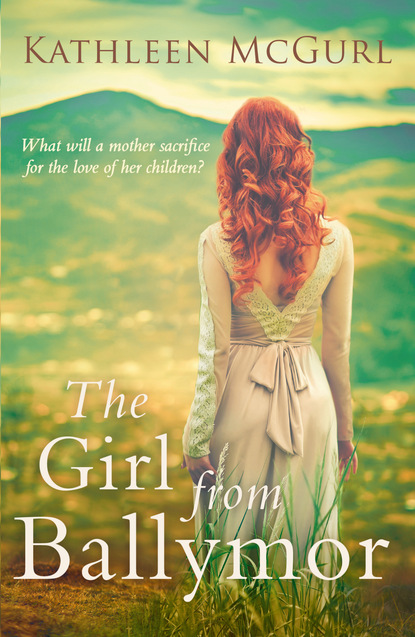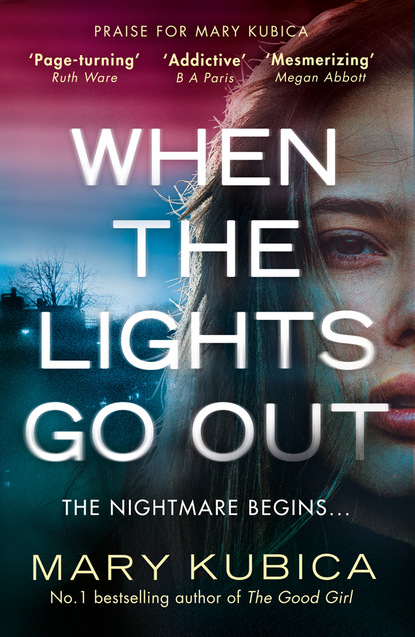
Полная версия
The Woman In The Mirror
She took the key from her pocket and let herself in.
Chapter 10
Cornwall, 1947
My first week passes in a contented haze. Being around the children is a constant tonic, their smiles and laughter warming me utterly and their sweet enquiries occupying my mind in a way it hasn’t known in years. I realise that I was merely treading water back in London: working at the solicitors’ office was a way to earn money but it was also a way to let time pass, to allow my life to wash past me in a flat tide. Here, at Winterbourne, with Constance hanging off my arm and Edmund running ahead, I feel hopeful and alive. There is nothing to be afraid of any longer.
Why my predecessor absconded I shall never understand. If a matter should arise of such urgency that I should be called away, that would be very well, but to disappear completely from my charges’ lives? I cannot imagine turning my back on the twins, accepting that I would never see them again. Already, and these are early days, Constance and Edmund have become part of me. Simply, I adore them. Each morning I wait for the sound of running footsteps on the landing above, the excitement of their squeals and their smiles lit up across the breakfast table. I was deeply touched on the afternoon they sketched me in the clearing; I should have known by their furtive whispers that they were planning a surprise, but when I saw the finished portraits I couldn’t help but gasp. They had drawn me all in white, in a sumptuous wedding dress with a full skirt and pretty sleeves, just as I had always dreamed of for myself, and just as I might have had, had I not lost the only man I ever loved. My love, my dearest love… For a fleeting moment the sun disappeared and I had simply stared, wondering how intuitive these angels could be to sense what had happened to me – the happiness that now remained for ever beyond my reach – and the heady mix of irony and sweet enticement their drawings provoked…before their laughter drew me from my reverie and reminded me it was children’s folly, nothing more. ‘You’d make a beautiful bride,’ Constance said, kissing my cheek. That the previous nurse could have left such heavenly companions in her wake astonishes me.
I spoke to Mrs Yarrow on Friday:
‘Isn’t it odd that the last governess sent no word of her whereabouts?’
‘It was a family matter,’ Mrs Yarrow replied.
‘Yes, Tom explained. But, knowing the children as I do, I find it strange to say the least. The captain hasn’t heard from her since?’
‘No one has.’
‘Did she have friends here? In the village?’
‘I wouldn’t know the first thing about her private life, miss.’
‘Of course not. Forgive me.’
Since our exchange, I have tried not to think too deeply about it. Just because I have found an intense connection with Edmund and Constance does not mean every woman would. I can only praise the governess, whoever she was, for the work she completed before her departure. Her students are courteous, inspired, loving and tender. I dote on them as I would my own. But I am training myself away from such fancies, for the children are my wards and there it ends.
Captain de Grey seems pleased with the arrangement, as far as it is possible to tell. I have only encountered my employer twice since that first day, and one of those encounters constituted barely a passing nod on his part. The second was while selecting books in the library for our afternoon study, when I caught him watching me from the door. ‘Are you finding everything you need?’ he asked, but I knew when I turned that he had been standing there longer than was necessary, and longer than an ordinary man would were he hoping to ask such a pedestrian question as that. I replied that I was, thank you, and he retreated to whatever preoccupation holds him in thrall from day to day in his study. Still, even after he’d gone, I felt his eyes on my back and I wondered for how long he had waited, unseen, behind me, before he spoke. It ought to have unnerved me but instead I found it a thrill. I find him a thrill. The surprise of him, appearing as if from nowhere, dangerously quiet and dangerously handsome…
Alice Miller – for heaven’s sake, wake up!
Mrs Wilson’s admonition at Quakers Oatley: I am dreaming again. I am imagining. Always prone to such things, or so I am told.
It is a fine September day, unusually warm for the onset of autumn. This afternoon, the children and I head across the parkland to a promised lake. Part of my concern is to ensure the twins’ physical exercise, and their favourite pastime is swimming. It seemed to me we would be spoiled for water, with the sea surrounding us, but Mrs Yarrow was quick to extinguish that notion. ‘Oh no,’ she said quickly. ‘Absolutely not, miss. The captain would never allow it. The sea is off limits.’
‘We wouldn’t go far. Mere paddling.’
‘No, miss. Captain de Grey forbids it. No child of his will ever set foot in that water. You mustn’t think of it. Swear to me you won’t.’
Of course, I had no option but to swear, and the children accommodated my embargo with their usual charm and gentleness, directing me instead to a pool in a sheltered glade. It is an almost precise circle, bordered by reeds and the fat, happy heads of bulrushes. A dragonfly hovers over the still, blue surface.
‘Geronimo!’ Edmund leaps in in his shirt and shorts, splashing like a dog.
‘Edmund,’ Constance cries, ‘you’re not in your bathing suit!’
‘I know! Isn’t it splendid?’
I ought to chide the boy but the sheer ebullience of his performance brings a smile to my face, after which my scolding would be pointless. ‘Just for today,’ I tell him, sitting with my hands looped round my knees, enjoying the warm breeze as it teases my skirt. Constance obediently changes into her swimming suit and lowers herself gingerly into the water. Edmund promptly splashes her.
‘No! I don’t like to get my hair wet!’
‘Don’t be such a girl.’
‘I am a girl.’
I watch them frolic with childish abandon, the water spraying over their arms and heads in bursts of silver. I find their courage and resilience admirable – the courage and resilience of all children, I suppose. They scarcely knew their mother before she died; they will hardly have a mind picture of her. And yet they carry no bitterness, no sullenness, simply a love of life. I think back to my own childhood and try to pinpoint a moment at which things seemed straightforward, but it’s difficult. When I think of bathing, I think of the dank green bathroom at my parents’ house in Surrey, of the crust of mould around the bathroom taps and the cracked soap in a tray on the sink. I think of the water, cooling around my ten-year-old body, the wrinkled skin on my toes and fingertips but I still didn’t want to climb out. I could hear my parents arguing downstairs, a slammed door then the angry stomp of footsteps on the stairs. My father’s fist would pound on the door. ‘Are you still in there, girl?’
Or I think of the baths at Burstead, those harsh iron troughs, a naked bulb swinging above my head and the shrieks and yelps of girls in the yard outside. When I first arrived at boarding school, I cried in the bath. I cried because I was lonely, and I hadn’t any friends, and I wanted my parents even though I hated them and I wanted my home even though I hated it, and everything was confusing. A girl called Ginny Pettifer had found me crying, and brought her friends to look in at me and laugh. I close my eyes, pushing down the dreadful memories. Of that miserable bath, yes, and of Ginny’s gleeful face at the door – but then of years later, and more water, much more, blooming the most perfect shade of red like a lover’s rose, and a tangle of hair and two panicked, swollen eyes, a hand reaching for mine and grasping air…
My parents had imagined that Burstead was the answer to their problems. I spent seven years at that school and the first five were miserable. Then, all of a sudden, Burstead stopped answering their problems, and started answering mine.
‘Alice, Alice, look!’ Constance’s cry brings me back to the present. She is on the rim of the pond, ready to jump. ‘I’m going to jump! Look, look!’
‘I’m looking!’
With a splash, she’s back in the water. Edmund complains at the impact, splashing her back. For a moment I let myself become part of the joyful scene, really part of it, as if I were one of the children here, a long time ago. No mistakes made, no loss, no suffering. Stop daydreaming, Alice. Daydreaming is for fools.
When the time comes for them to get out, I reach in and offer my arm. Constance takes it first, warm and definite, full of trust, then the boy.
The twins giggle as they dry off in the sun.
See? I think. I did the right thing. This time, I did.
*
Later that day, while the children are taking their supper, I hear a motor car approach the house and then the sound of a slamming door.
‘Are we expecting anyone, Mrs Yarrow?’
‘Only the captain’s doctor.’
I go to greet him. The man on the doorstep is a little older than me, with a mop of brown hair and a neat moustache. He carries a doctor’s bag and there is a wire-haired pointer at his heels. ‘You must be Alice Miller,’ he says, amiably.
‘How do you do.’
The man nods his cap, removes it. ‘Henry Marsh, the captain’s physician.’
‘So I understand. Won’t you come in.’
In the hall, Henry Marsh takes off his coat. The dog trails after him, a splash of white on the tip of his tail. He makes a comment about the animal being his trusted assistant, and how Captain de Grey has no objections to his attendance. I smile and stroke the dog, fussing round his ears and his gruff, wizened face. The doctor watches me kindly, inquisitively.
‘How are you settling in?’
‘Very well, thank you.’
‘Is the man of the house up and about today?’
‘I haven’t seen him – but that doesn’t mean he’s not.’
Henry smiles back. ‘It’s a big place, Winterbourne, isn’t it?’
‘Certainly.’
‘It takes some getting used to?’
‘I’m used to it already. The children have helped me with that.’
Henry’s smile doesn’t move or change, but his eyes no longer concur. ‘I’m sure,’ he says. ‘If you’ll excuse me, I must see to my patient.’
‘Of course.’
An hour later, the doctor is back in the hall, the dog keeping close to his heels.
‘Is everything well, Doctor?’ I ask.
He appears somewhat troubled; I offer him a drink. ‘No, thank you,’ he says. ‘I’d best be on my way. I’ve another appointment in Polcreath.’
I see him move to go, then, on impulse, I place a hand on the door.
‘Doctor,’ I begin, checking swiftly behind me that we are alone, ‘forgive my impertinence, but I wonder if the captain is quite well. You will of course be the person to ask about this – and of course you will tell me if it is not my concern. But his leg appears to be causing him great pain and I worry that he refuses to admit it.’
The doctor steps back. In the same moment, without warning, the wire-haired pointer makes a sudden dash for the bowels of the house, scooting off in a flash of fur to the lower stairs. ‘Hell and damnation!’ Henry cries. ‘Tipper, get back here!’
‘I’m sorry,’ he turns to me, ‘he occasionally does this. Normally I can get him out before he does. It must be rats down there; he’s picking up a scent.’
‘Let’s follow,’ I say, thinking it rather good luck. We walk. He talks.
‘Jonathan is that breed of man who doesn’t readily admit weakness,’ the doctor says carefully, his instinct towards friendliness wishing to answer my question but his professionalism keeping him within reasonable bounds. It interests me that he refers to the captain by his name – it makes my employer seem less remote, more like an ordinary person, no one to be afraid of. ‘He comes from that sort of family,’ Henry says, ‘old English, stiff upper lip, that sort of thing. When he went off to war, there was no question of his surviving. The de Greys were – are – an institution in Polcreath; the idea of one of them falling victim to as trifling a matter as war was unthinkable. The captain wasn’t just to live: he was to triumph.’
We embark down the stairs. ‘Tipper!’ he calls. ‘Damn dog. Sorry for my language. He’s old; I shouldn’t bring him on my rounds any more.’
‘Are the captain’s injuries very bad?’
The doctor considers his reply. ‘They are as they appear,’ he says at length, as he helps me down the steps. It’s cold and dank, this lower part of Winterbourne shut off from the rest of the house so that it feels as if we are trespassing. ‘When his Hawker Hurricane went down over France, it was a miracle he was dragged out alive. Some might say a few burns and a dicky knee were a small price to pay.’
‘Is there potential for improvement?’
‘With the knee, certainly, but with injuries like this, a big part of the patient’s recovery is caught up in his outlook. Frustration doesn’t come close to describing it, particularly for a man in Jonathan’s position. He sees his war wounds as failings, where others might see them as strengths, badges of honour, however you like to describe it. Jonathan is a brave man, no doubt about it. But he isn’t the most open to accepting a doctor’s help. If he didn’t have to see me at all, I’m sure he’d be glad.’
We emerge into a fusty corridor, sooty with dust and cobwebs.
‘This must be the old servants’ quarters,’ I say out loud, and Henry nods, remembering I don’t yet know the house. From the way he stalks ahead, peering behind doors after his dog, it’s clear he’s been down here several times, probably for the same reason. I look up and see the bell box Mrs Yarrow was talking about, the one the evacuees used to play havoc with. It’s a handsome thing, its gold edges tarnished but the dozens of names beneath the chimes are visible: DINING ROOM, STUDY, LIBRARY, MASTER BEDROOM… I imagine the servants rushing along this corridor in another decade, bright with bustle. Now, it’s as quiet as a graveyard.
‘Tipper!’ Henry is shouting. ‘Get back here, you useless mutt!’
The doctor encourages me to turn back; he’ll be up with the dog soon enough. But I’m looking at that bell box, picturing the maids rushing up to the captain’s bedside. I’m picturing the woman in bed beside him.
‘Did his wife die while he was away?’ The darkness makes me bold. Here we cannot be heard, cannot be seen. Here, I can say what I like.
Henry shakes his head. ‘The captain’s crash happened in ’41. He was no good to the effort after that and came straight back to Winterbourne. She’d struggled while he was absent, of course, coping with two babies on her own. But it wasn’t until the following year that she died.’ There, he stops. He knows we have stumbled off limits.
‘I don’t mean to speak out of turn,’ I say, hoping to assure him of my loyalty. ‘It’s just I feel such affiliation with Edmund and Constance, and in turn with Winterbourne, and in turn with the captain. I care for them all.’
‘I understand. But the death of Laura de Grey isn’t a matter for discussion, here or anywhere in Polcreath. I should never have entertained it.’
Her name coats me like heat. It’s the first time I have heard it. Laura.
I have an almost overwhelming desire to say it aloud, but I don’t. Her husband would have left to fight right after their twins were born, leaving her to deal with their infancy by herself. I recall Mrs Yarrow talking about the evacuees and the bell box, about those howling hounds belonging to the man called Marlin, and how Laura was kept awake at night, exhausted and alone, prey to two screaming nurslings, growing to hate Winterbourne and its severe outlook, its arched windows and gloom-laden passages, the thrashing sea outside mirroring the thrashing in her mind, wishing fervently for her husband’s return… And when the captain did come back, had he been the same? Physically he was compromised, yes, but was he the man she’d married, in spirit, in soul, in temperament? Did he look at her in the same way; did he talk to her as he had? Laura. The mother. The wife. The powerful.
Laura.
‘I shouldn’t have raised it,’ I say. ‘I’m sorry.’
We are interrupted by a frantic bark. ‘At last!’ the doctor mutters, and I follow him down the hall and towards another set of descending steps. Just how deep does Winterbourne go? ‘I should have known he’d be here,’ says Henry, as the barking becomes a higher pitched yap, a moan, nearly, as if Tipper has hurt himself. ‘The cellar – again!’ We arrive in a small, damp room: the full stop of the house. It can’t be longer than a few metres, and the walls are exposed stone, mottled black. There are a few empty crates on their sides on the dusty ground.
‘Is he all right?’
Henry grabs the dog’s collar and attempts to soothe him, but the animal is wild. I take a step back: Tipper’s eyes are mad, his mouth pulled over his gums, his teeth bared. Saliva darts from his tongue with each expulsion. His fur stands on end, his spine arched, his tail set. He yelps then cowers, yelps then cowers.
‘Come now, boy,’ says the doctor gently, ‘it’s just a silly old door.’
I see the door he means, though I didn’t at first. It is set in the corner, lost in shadow but not quite. It is unfeasibly old-looking, and small, so small as to be uncertain if it was intended for a person to walk or crawl through. Its wood is cracked and splintered with age. In the style of the house, it wears a gothic arch, with a heavy rounded handle partway down. I try the handle but it doesn’t give.
‘Why is he afraid?’ I ask.
‘He’s an old dog full of bad habits,’ says the doctor lightly, although I can see he’s as keen to get back upstairs as I am.
‘Where does it lead?’
Henry doesn’t know. ‘I should think there’s a lot of old rubbish behind there,’ he says. ‘Tipper can smell it.’ He’s struggling to restrain the dog. ‘Let’s go.’
We head back the way we’ve come, Tipper dipping his head, his tail bowed, staying tight to his master’s heel. ‘That’s the last time I bring you with me, do you hear?’ he says gently to the hound. Before we ascend the final staircase, I look behind, wondering at this cold, abandoned netherworld, seeing that strange door, beyond which Tipper knew about something we did not.
I hear her name again.
Laura.
Конец ознакомительного фрагмента.
Текст предоставлен ООО «ЛитРес».
Прочитайте эту книгу целиком, купив полную легальную версию на ЛитРес.
Безопасно оплатить книгу можно банковской картой Visa, MasterCard, Maestro, со счета мобильного телефона, с платежного терминала, в салоне МТС или Связной, через PayPal, WebMoney, Яндекс.Деньги, QIWI Кошелек, бонусными картами или другим удобным Вам способом.





